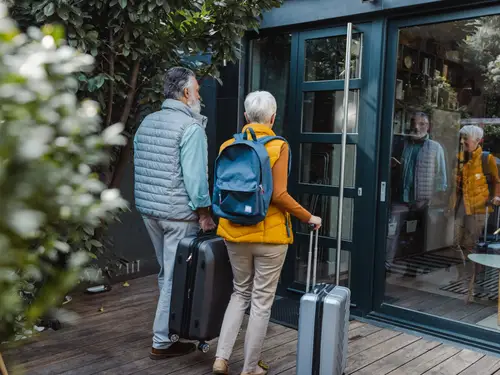Income too high for Medicaid? ‘Spend down’ to qualify

According to August tracking data from KFF, a health policy nonprofit, more than 1.4 million people will lose Medicaid coverage in 2023 because they no longer meet the eligibility requirements.
Following a pause in disenrollment during the COVID-19 public health emergency, beneficiaries must now demonstrate that they still meet the Medicaid income limits. People whose income has increased may lose their coverage.
Some beneficiaries may be unaware that, even if their income appears to be too high for Medicaid, they may be able to spend down some income to qualify. Spending on medical bills, including Medicare premiums, can be deducted from a beneficiary’s income when applying for Medicaid.
What exactly is Medicaid spend-down?
According to Catrice Simpson, a supervisory social service representative for the Washington, D.C., Department of Health Care Finance, a spend-down is similar to a health insurance deductible. “It is the amount you must show proof of meeting or exceeding before the insurance plan starts to pay, in this case it’s before Medicaid starts to pay,” Simpson wrote in a message.
For example, someone earning $200 more than their state’s Medicaid limit may become eligible if they have at least $200 in qualifying medical bills.
People who qualify as “medically needy,” such as those with certain disabilities, children, or those 65 and older, can spend down their income in order to qualify for Medicaid.
The rules governing who qualifies as medically needy differ by state. In Washington, D.C., for example, parents or caregivers of children under the age of 21, pregnant women, and people living in nursing homes can all spend down to qualify for Medicaid.
How does cutting back on spending affect medical bills?
Spending less to meet Medicaid income requirements means that Medicaid will cover some of your medical bills. However, it will not cover the bills for which you previously qualified.
If you pay $300 out of pocket for a doctor’s visit and deduct that amount from your income, Medicaid will not reimburse you later. However, additional bills that you did not use for the spend-down may be covered by Medicaid.
If you have Medicaid as well as another type of insurance, they can work together to pay for your care. If you have both Medicare and Medicaid, for example, Medicare pays for services first, and Medicaid pays for any costs that Medicare did not cover, such as copays, coinsurance, and deductibles.
Medicare Beneficiaries’ Benefits
Medicare covers the majority of health care for people 65 and older, as well as those with certain disabilities.
“There is a common misconception that Medicare will pay for long-term care, which it will not,” says Daniel Tully, a Connecticut elder law attorney.
Tully says Medicaid does cover long-term care and may be an option for those facing high costs that Medicare does not cover. Tully believes that those beneficiaries may be able to qualify by spending down or taking other estate planning actions such as establishing a Medicaid-compliant trust.
The “Extra Help” subsidy is available to Medicare beneficiaries who spend down to qualify for Medicaid. Extra Help covers the premiums, deductible, and the majority of out-of-pocket costs associated with Medicare Part D, which covers prescription drugs. The government estimates its annual value to be around $5,300.
Assistance with the spend-down process
Your state’s Medicaid agency can provide information on Medicaid eligibility rules, including the spend-down process. Select your state to learn more about Medicaid eligibility and enrollment, as well as contact information.
Tully describes Medicaid planning laws as “very complicated.” “You really want to take the time to make sure you’re being advised by a professional,” he says.
Your State Health Insurance Assistance Program, or SHIP, can provide you with free, personalized counseling. SHIPs have offices and counselors who can speak to the specifics of your state and situation regarding Medicare, Medicaid, and related programs. Shiphelp.org will direct you to your nearest SHIP office.
According to Simpson, most people find the spend-down process overwhelming at first, but once explained, people with medical bills usually don’t hesitate to begin the process.






